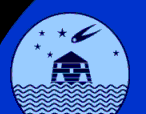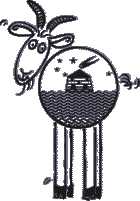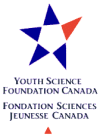


















[Mission/Intentions|Bilingualism|YSF|The City of Kingston|Queen's University] The twentieth century witnessed a revolution in the sciences and technology which has transformed our world. Today, the sciences are exploring areas which defy the imagination, from black holes, billions of light years away, to genetic recombination research in microbiology. Research increasingly requires overlapping among the traditional scientific and engineering disciplines. As a Canada-Wide Science Fair at the start of the twenty-first century, CWSF 2001 will open a century in which it is anticipated that advances will be even greater than those made during the present century. The mission of CWSF 2001; A Science Odyssey Through the 1000 Islands is to celebrate the creativity and talents of young scientists in a setting that involves both the educational system and the community. CWSF 2001 will be held in the region of Kingston and the Thousand Islands. Kingston, the first capital city of Canada and the home of Canada's first Prime Minister, Sir John A. Macdonald, celebrated in 1996 the hundred and fiftieth anniversary of its incorporation. Located on eastern Lake Ontario, Kingston is surrounded by water and forests, with many rivers, lakes, parks and conservation areas located nearby. Kingston, a relatively small but bustling city, has retained much of its historical character. Many of the activities of CWSF 2001 will be held at Queen's University. The first university west of the Maritimes to grant undergraduate degrees, Queen's has grown to be recognized as one of the most outstanding and highly regarded of Canada's major research-oriented universities. The total full-time student population is 14,000 of which 2,800 are graduate students. There are eight faculties: Arts and Science, Applied Science, Business, Education, Law, Medicine, Nursing and Theology with over forty departments and interdisciplinary schools. Queen's will provide an excellent atmosphere for CWSF 2001 The attractive campus, with its distinctive limestone buildings and quiet, tree-lined streets is located on the north shore of Lake Ontario and is only a few minutes walk from downtown Kingston. [Top] YSF About 500,00 student science projects compete within their classroom or school and some 25,000 of those become eligible to participate in the Regional Science Fairs. There are currently 110 regions established in Canada which are eligible to participate in the National Science Fair Program upon annual affiliation with YSF Canada. Winners from each of the RSF's are then brought together at the annual Canada-Wide Science Fair. Over 400 students have the opportunity to communicate and compete with the best students in Canada and to be judged by highly competent scientists and researchers. [Top] MissionOur mission is to celebrate the creativity and talents of young scientists in a setting that involves both the educational system and the community. Intentions
[Top] Bilingualism at CWSF 2001At Canada-Wide Science Fair 2001 in Kingston all services will be provided in both official languages, English and French. This includes registration, tours, ceremonies, newsletters, social activities, meetings and most importantly, judging. Since Kingston is mainly an anglophone community, all services are readily available in English. To offer services in French, CWSF 2001 will rely on the very active French community composed of approximately 5,000 francophones; this number is much higher when we include immersion and bilingual students. In fact, according to a public survey conducted in the Summer of 1995 by Beaulieu et Lemire Consultation, Recherche et Formation inc. for ACFO Conseil régional des Mille-Iles, there are more than 20,000 people in the Thousand Islands region who can speak both official languages. The presence of francophones and French-speaking students is very important at our regional Science Fair. In fact, about 10-15% of the projects require French judging. In recent years, several French projects were sent to the Canada-Wide Science Fairs (2 out of 3 in 1993, 2 out of 4 in 1994, 1 out of 5 in 1995, 2 out of 5 in 1996 and 2 out of 4 in 1997). Application forms and other documentation sent to the students are available in both languages. The awards ceremony is presented in both languages. In addition, the current co-chairs of the Regional Science Fair committee are bilingual. About 15-20% of our 90 judges can express themselves and judge projects in French. This number could be increased easily to 50% at the Canada-Wide Science Fair in 2001 since the Royal Military College of Canada is located in Kingston and it is a bilingual military college and is a very good source of judges. In addition, even though Queen's University is predominantly English, there are a lot of professors in the different science and engineering departments who can express themselves in both languages. According to the public survey (1995) presented above, a large proportion of the French community has a degree at the university level (34%) thus providing us with a good base of possible judges. Historically, Kingston was originally a French area when the Comte de Frontenac founded a post (Fort Frontenac) and as mentioned earlier, the Kingston French community is very active. We have four French First Language schools (2 elementary schools and 2 high schools) and a number of French immersion schools. Students in these schools are all possible volunteers for CWSF 2001. Kingston also has many different French organizations in different domains including politics (ACFO Mille-Iles), social (Champlain, Queen's French Centre, Alouette de Quinte Club), cultural (Frontenac Cultural Centre), youth (Kingston Optimist Club, Frontenac CFB Optimist Club, Octogone Club, Boy Scouts), daycare services (Croque Soleil, Beau Soleil, The Explorers, Les Frimousses), seniors (Âge de l'Avenir Senior Club), literacy (La route du Savoir), sciences (FL&A Science Fair, Accès-Science inc.) and arts and communications (Les Trétaux de Kingston theatrical company, La Bonne Franquette Productions, CFRC-FM 101,9, Francophone Choirs). In conclusion, CWSF 2001 in Kingston will ensure that both francophones and anglophones feel welcome in our city and can express themselves in the language of their choice. [Top] The City of KingstonFounded in 1673, the "Limestone City" is one of Canada's oldest settlements. It is Canada's first capital city and offers a distinctive and diversified blend of old and new. Visitors to Kingston always fall in love with the city's charm and history. Nestled on the shore of Lake Ontario, Kingston lies at the mouth of the Rideau Canal and the beginning of the 1000 Islands. As a city, Kingston is an interesting blend of Canadian history and modern convenience. Historically, Kingston offers Old Fort Henry, the home of Sir John A. Macdonald, numerous museums on early Canadian history and an unparalleled collection of original limestone buildings. Today, Kingston is home to Queen's University, the Royal Military College, St. Lawrence College and CFB: Kingston and has become an important centre for industrial research, higher education and the health sciences. For the visitor, Kingston has many shopping options, from large malls to the charming downtown shopping district. Recreationally, Kingston is known as the "Fresh-water Sailing Capital of the World." The Olympic Harbour was the site for the XXI Olympic Sailing venue and continues to boast an annual international sailing event: C.O.R.K. As a result, guests often take advantage of access to sailing, fishing, canoeing and various boat cruises throughout the 1000 Islands. In addition, Kingston has a number of superb golf courses and a wide variety of excellent restaurants. Captured in 17 museums, Canada's past is brought to the present. Exhibits depicting Great Lakes shipping, communications, corrections/prisons, archaeology, geology, international hockey and steampower are presented. Military tradition is reenacted at Fort Henry. [Top] Queen's UniversityQueen's University is regarded as one of Canada's leading universities. Since the first day of classes in 1842, Queen's has contributed significantly to filling this country's need for leadership in science, business, government and education. Queen's University offers to its students a wide diversity of programs including undergraduate and post-graduate programs in science and engineering. Queen's students come from every province and territory in Canada and from more than 70 nations around the world. The full-time undergraduate enrolment is limited to approximately 11,000 students and enrolment in the School of Graduate Studies is approximately 2,800. The Queen's campus is unique in Canada. Unlike other universities, Queen's has been able to maintain a single, small campus feel. In fact, most campus buildings are a short walk from each other. The campus is set in the midst of both modern and century-old limestone buildings and is bordered by parks and the Lake Ontario waterfront. Queen's is constantly updating, building and improving campus facilities. As a result, the university has retained its charm, while staying modern. Queen's offers a variety of science programs which involve the Kingston community. Two of the most successful programs are summer science camps for students entering grades 5 through 10. As guests of the university, participants will have access to the extensive recreational facilities including a variety of courts, weight rooms, gymnasia, tracks, playing fields and an indoor pool. The newly-built Stauffer Library with its extensive collection of over one-and-a-half million volumes will be open to participants all week, as will the newly-renovated Douglas Science Library. [Top] |
| Canada Wide Science Fair 2001 - Kingston |  |